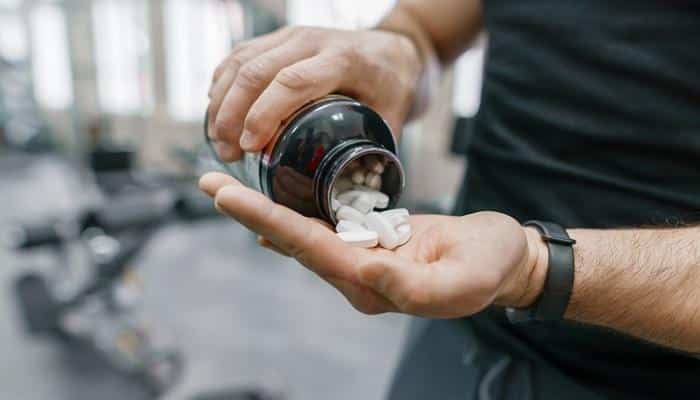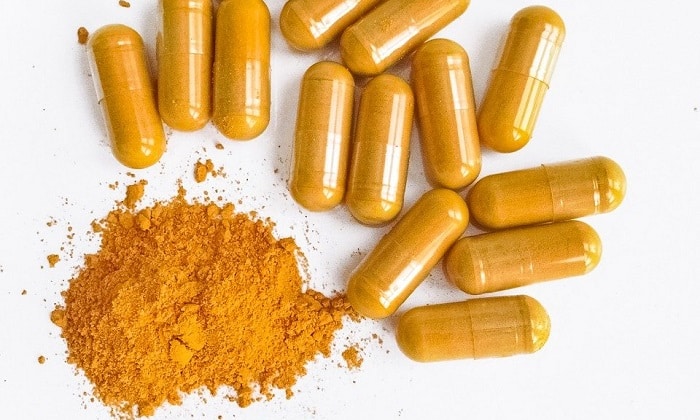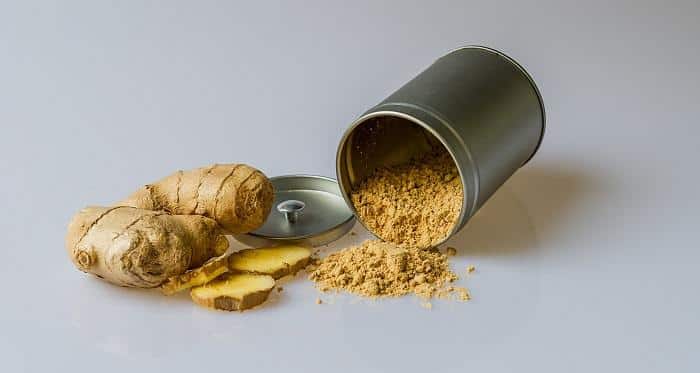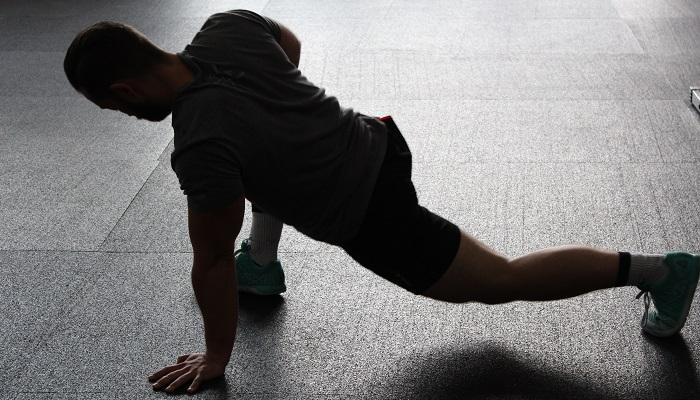Many athletes know that exercise and movement are an important part of maintaining health. As an athlete, you probably also know that when you work out, you’re doing something good for your muscles. But did you know that regular exercise is also great for your joints?
Athletes of all skill levels can keep their joints healthy and functional through movement. However, with the regular use of your joints comes the potential for wear and tear. Fortunately, there are supplements, nutrients, and other measures that athletes can take to care for their joints.
This article will cover why joints are so important to athletes, how supplements can potentially help your joints, and other tips for both building and repairing joints.
The importance of joints in sports
Before diving into why athletes should care about their joints, it’s important to do a quick overview of what exactly joints are.
Joints are found between various bones and are responsible for movement. You have many different shapes and kinds of joints, like ball-and-socket joints in your hips and hinge joints in your elbows.1
The direction and how far your joints can move depends on the type of joint and the muscles around it. Joints help with range of motion, something many athletes are familiar with. This means that healthy and flexible joints can increase your range of motion while injured, overused, or inflexible joints may cause your range of motion to decrease.
But much more than just the joint goes into making it work. Fluids, ligaments, cartilage, and muscles are also involved in helping joints function properly.2
It’s pretty easy to see why joints are so important for athletes. Unfortunately, joints can become damaged due to overuse and even lack of use. Joints that are tight or injured may cause your athletic performance to suffer.
Your brain and the rest of your body are always communicating. This is where something called proprioception, or kinesthesia, comes in. Proprioception is how the body senses movement and position and is vital to athletic performance.3
Receptors on your joints aid in communication with your brain. This communication allows your body to know when a joint may be limited in its movement from tightness or damage. And when your brain gets the signal that something is wrong in a joint, your body will start to limit how much that joint and the muscles nearby can move.
To keep your joints moving and working at their best, you’ll need to take care of them through the right types of movement and proper nutrition, which can include various joint supplements for athletes.
What can supplements do for your joints?

Many people with arthritis and other health concerns take supplements for their joint health. Interestingly, athletes may be able to benefit from these same joint supplements.
There is a fair amount of research on joint supplements for athletes. And while the findings from this research don’t provide definitive proof that supplements will improve an athlete’s joints, there is evidence suggesting various benefits from some supplements.
Joints, muscles, cartilage, and other surrounding tissues and bones can become irritated, fatigued, and even inflamed from exercise. This can especially be the case for athletes who increase or change their exercise routine too quickly, leading to more stress on the body.
Joint supplements for athletes are typically marketed to do one of two things: reduce joint inflammation or protect the cartilage on joint surfaces.
When your joints seem to need some extra love and care, supplements may be a source of relief. However, other measures, like changing your workout and diet, may also need to be taken to help heal your joints.
The best joint supplements for athletes
There are many supplements that claim to provide joint relief for athletes. And while some of these claims may be warranted, only the joint supplements that have been well researched and found to have potential benefits will be presented here.
It’s important to note again that the evidence behind these supplements isn’t clear-cut. It’s always best to talk with a knowledgeable healthcare provider who can help you better understand joint supplements and whether they may be a good option for you. Your healthcare providers should always know what supplements you are taking.
To better understand potential benefits, let’s look at some joint supplements for athletes.
1. Glucosamine

Glucosamine is found in the cartilage surrounding your joints. It’s a natural compound that your body produces as needed. It is thought to support the cartilage your joints rely on to function properly.4
Results from studies on glucosamine have been mixed. One meta-analysis found that glucosamine improved joint stiffness.5 And many Glucosamine users have reported improved function and even less pain in their joints.4
2. Chondroitin
Chondroitin is similar to glucosamine as it is another structural component of cartilage. Chondroitin is thought to support the cartilage surrounding the joints. Many joint supplements for athletes even combine glucosamine and chondroitin for potentially better outcomes.
The same meta-analysis that found glucosamine could improve joint stiffness also found that chondroitin may improve joint pain.5 It’s also possible that chondroitin supplements could benefit the structure of the joints.4
Glucosamine and chondroitin may interact with blood-thinning drugs like warfarin, so people taking these medications should avoid these supplements.
3. Omega-3 fatty acids
You’ve probably heard of omega-3 fatty acids before. These are the extra healthy fats found in fish, fish oil, and some other plant-based foods, like walnuts, chia seeds, and flaxseed.
Omega-3 fatty acids have been studied in athletes to see if they may offer some benefits for joints.
One study found that supplementation with a marine oil blend containing omega-3 fatty acids helped prevent range of motion loss in amateur athletes.6 Another review noted that omega-3 fatty acids have the potential to decrease inflammation and pain in joints.7
4. Curcumin

Curcumin is a bright yellow herbal supplement that is a natural substance of turmeric. It has anti-inflammatory properties that make it a popular supplement for various populations of people.
For athletes, curcumin may be able to reduce inflammation induced by exercise. It has been found to reduce levels of inflammation markers when compared to a placebo in athletes performing squat exercises.8
5. Boswellia
Another herbal supplement, Boswellia comes from the Boswellia serrate tree and has been found to be anti-inflammatory. It is often used in holistic Ayurvedic medicine in India.
Boswellia supplements have been found to decrease joint pain and stiffness and increase function, specifically in the knees.9 And in a small study, a supplement containing both Boswellia and curcumin was found to improve both joint pain and function.10
6. Collagen
It makes sense that taking a collagen supplement may benefit your joints since collagen is a natural component of your joints.
A small, 24 week-long study found that athletes taking collagen supplements had less joint pain compared to those taking a placebo.11 And combined collagen and gelatin supplements have been found to increase collagen production as well as thicken and strengthen collagen.12
7. MSM (Methylsulfonylmethane)
Methylsulfonylmethane, or MSM as it’s more often called, is a natural substance and popular supplement among athletes. It is thought to improve both inflammation and pain in the joints.
In one study done on runners, MSM was found to improve joint pain after running a half marathon.13 Another study done on rats concluded that MSM supplementation may inhibit the breakdown of the cartilage surrounding the joints.14
8. Ginger

A popular herbal supplement, ginger has been used for thousands of years in Chinese, Indian, and Japanese medicine. It’s a well-researched and generally safe supplement that may have various benefits for athletes.15
Ginger has been shown to be anti-inflammatory in many studies.8 It has even been found to improve joint inflammation in patients with rheumatoid arthritis.16
9. Calcium
Calcium is the most abundant mineral in the body, and it does more than just keep your bones and teeth strong. You also need calcium for normal muscle function, something that is essential for athletes.
Many foods contain calcium, but if you can’t seem to get enough then a supplement may be beneficial. Endurance athletes especially are susceptible to calcium loss, so taking a supplement may be necessary to keep your bones and joints strong.17
10. Vitamin D
If you’re taking a calcium supplement, then it may be necessary to take a vitamin D supplement as well. This is because vitamin D helps your body absorb calcium so the two can work together to protect and strengthen bones.
It’s important for athletes to get enough vitamin D for the sake of their bones, muscles, and joints.17 However, you can take too much vitamin D and calcium, so it’s important that you only take these supplements if you’re deficient.
Other tips for building and repairing joints
There are steps you can take to keep your joints healthy enough to not need to take extra measures to repair them.
You’ve probably heard all your life how good nutrition and regular movement can keep your muscles strong and your heart healthy. But leading a healthy lifestyle can also keep your joints flexible and functional.
The cartilage around your joints can break down over time, especially with lack of use. And, over time, cartilage can become damaged beyond repair.
Regular movement lubricates joints and keeps them healthy. So, continuing your exercise routine as an athlete should help you maintain your joints as long as you don’t overdo it.

Your joints are impacted differently when doing yoga versus lifting weights. And endurance exercises, like running and swimming, also have a different effect on your joints. But participating in a variety of exercises can be beneficial for your joints.
Finding a balance of strength training, aerobic exercise, and movement for flexibility can help prevent your joints from breaking down too soon. Stretching and flexibility are particularly important for maintaining range of motion in your joints, so don’t skip out!18
When it comes to food, a proper diet can help you maintain your weight and avoid extra stress on some of your joints, especially those in your knees.
You may also find that eating an anti-inflammation diet is beneficial for your joint health.The Mediterranean Diet is known for helping reduce inflammation and being an overall healthy diet.19 It’s also a sustainable way of eating that may be better classified as a lifestyle instead of a diet.
But if following a specific diet isn’t your thing, there are some basic things you can do to improve your diet and, possibly, the health of your joints.
First, it’s important to limit inflammatory foods like added sugar, saturated fat, red meat, alcohol, and refined carbohydrates. On the flip side, increasing your intake of anti-inflammatory foods like fruits, vegetables, whole grains, and healthy fats from sources like fish, almonds, walnuts, and avocado could benefit your joints.
Try supplements to enhance joint health and athletic performance
The health of your joints is imperative to your athletic performance. To take extra care of your joints, you may need to incorporate new movements, like stretching for flexibility, into your exercise routine. You may also need to alter your diet to improve your joint health.
There are many joint supplements for athletes, with some being better researched than others. These supplements may help you strengthen the cartilage surrounding your joints or reduce joint inflammation.
No matter what joint supplements you decide to try, you should have a conversation with your doctor or another healthcare provider before starting anything new.
 About Brittany Lubeck
About Brittany Lubeck
Brittany Lubeck is a registered dietitian and nutrition writer. She has a Bachelor of Science in Dietetics, a Master of Science in Clinical Nutrition, and began her career as a clinical dietitian. Brittany has always enjoyed research and loves that she can help people learn more about nutrition through her writing.
Sources:
1.. Juneja, P., A. Munjal, & J.B. Hubbard. “Anatomy, Joints.” National Library of Medicine. Ncbi.nlm.gov.
2. “How do joints work.” National Library of Medicine. Ncbi.nlm.gov.
3. Tuthill, J.C., & E. Azim. “Proprioception.” Primer 28, no. 5 (2018): PR104-R203.
4. “Glucosamine and Chondroitin for Osteoarthritis.” National Institutes of Health. Nccih.nih.gov.
5. Bruyere, O., & J.Y. Reginster. “Glucosamine and Chondroitin Sulfate as Therapeutic Agents for Knee and Hip Osteoarthritis.” Drugs and Aging 24 (2007): 573–580.
6. Mickleborough, T.D., J.A. Sinex, et al. “The effects PCSO-524®, a patented marine oil lipid and omega-3 PUFA blend derived from the New Zealand green lipped mussel (Perna canaliculus), on indirect markers of muscle damage and inflammation after muscle damaging exercise in untrained men: a randomized, placebo controlled trial.” Journal of the International Society of Sports Nutrition 12, no. 10 (2015).
7. Gammone, M.A., G. Riccioni, et al. “Omega-3 Polyunsaturated Fatty Acids: Benefits and Endpoints in Sport.” Nutrients 11, no. 1 (2019): 46.
8. Sellami, M., O. Slimeni, et al. “Herbal medicine for sports: a review.” Journal of the International Society of Sports Nutrition 15 (2018): 14.
9. Majeed, M., S. Majeed, et al. “A pilot, randomized, double‐blind, placebo‐controlled trial to assess the safety and efficacy of a novel Boswellia serrata extract in the management of osteoarthritis of the knee.” Phytotherapy Research 33, no. 5 (2019): 1457-1468.
10. Bannuru, R.R., M.C. Osani, et al. “Efficacy of Curcumin and Boswellia for Knee Osteoarthritis: Systematic Review and Meta-Analysis.” Seminars in Arthritis and Rheumatism 48, no. 3 (2018): 416-429.
11. Clark, K.L., W. Sebastianelli, et al. “24-Week study on the use of collagen hydrolysate as a dietary supplement in athletes with activity-related joint pain.” Current Medical Research and Opinion 24, no. 5 (2008): 1485-96.
12. Rawson, E.S., M.P. Miles, & D.E. Larson-Meyer. “Dietary Supplements for Health, Adaptation, and Recovery in Athletes.” International Journal of Sport Nutrition and Exercise Metabolism 28, no. 2 (2017): 188-199.
13. Withee, E.D., K.M. Tippens, et al. “Effects of Methylsulfonylmethane (MSM) on exercise-induced oxidative stress, muscle damage, and pain following a half-marathon: a double-blind, randomized, placebo-controlled trial.” Journal of the International Society of Sports Nutrition 14 (2017): 24.
14. Ezaki, J., M. Hashimoto, et al. “Assessment of safety and efficacy of methylsulfonylmethane on bone and knee joints in osteoarthritis animal model.” Journal of Bone and Mineral Metabolism 31, no. 1 (2013): 16-25.
15. “Ginger.” National Institutes of Health. Nccih.nih.gov.
16. Aryaeian, N., M. Mahmoudi, et al. “The effect of ginger supplementation on IL2, TNFα, and IL1β cytokines gene expression levels in patients with active rheumatoid arthritis: A randomized controlled trial.” Medical Journal of The Islamic Republic of Iran 27, no. 33 (2019): 154.
17. Sale, C., & K.J. Elliot-Sale. “Nutrition and Athlete Bone Health.” Sports Medicine (Auckland, NZ) 49, no. 2 (2019): 139-151.
18. Thompson, Dixie L. “Fitness Focus Copy-and-Share.” ACSMs Health and Fitness Journal. Journals.lww.com.
19. Tosti, V., B. Bertozzi, & L. Fontana. “Health Benefits of the Mediterranean Diet: Metabolic and Molecular Mechanisms.” The Journals of Gerontology Series A: Biological Sciences and Medical Sciences 73, no. 3 (2018): 318-326.